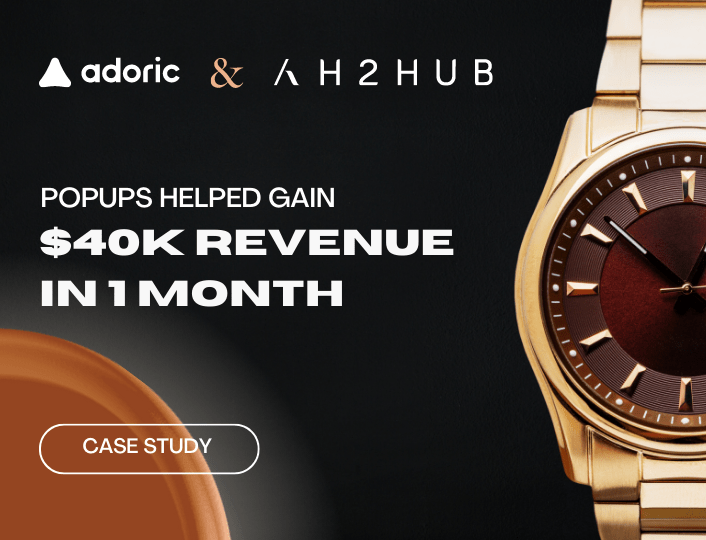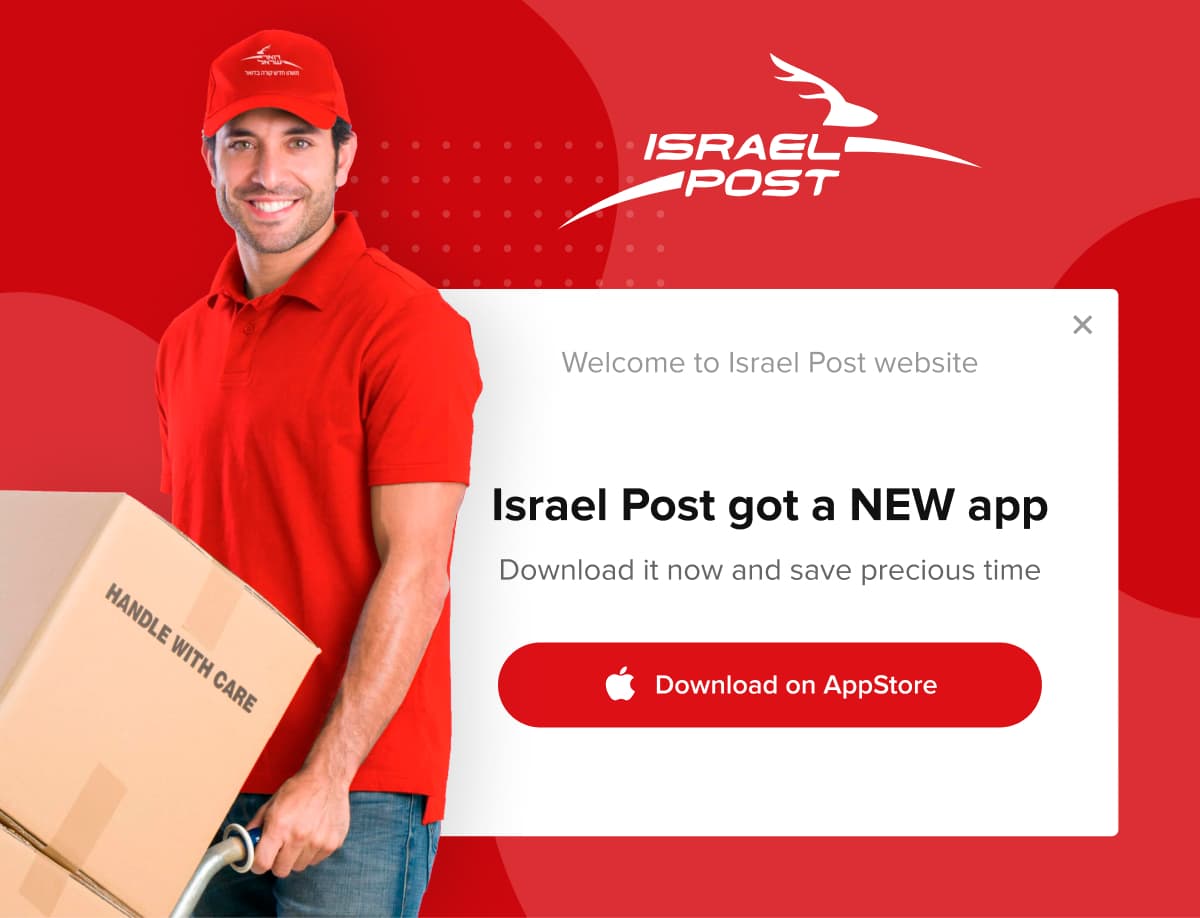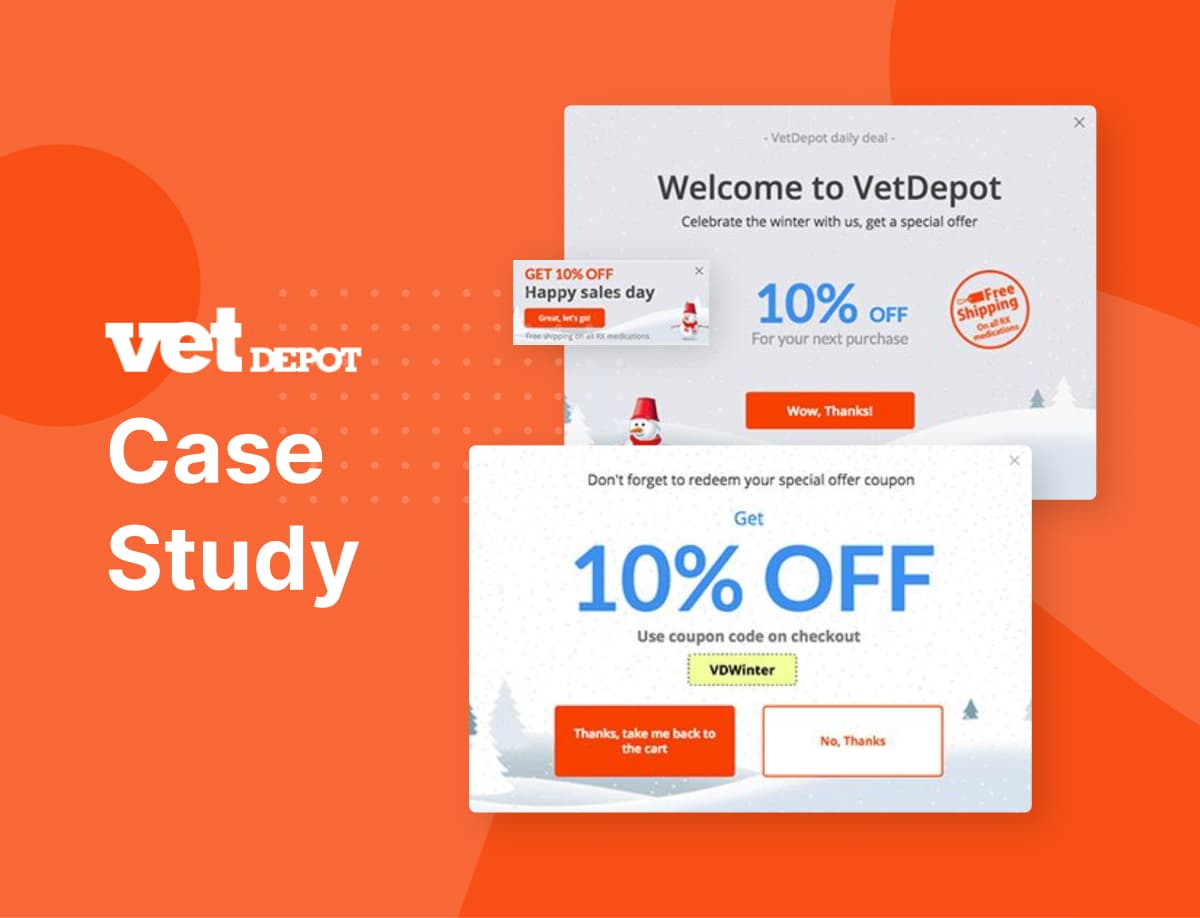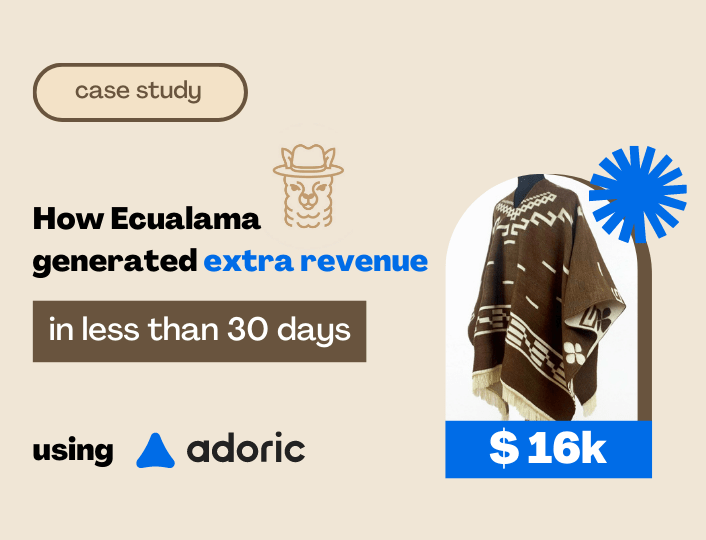H2 Hub Watches is a Singapore-based watch retailer, with a main focus on Swiss and Japanese-made watches. H2 Hub Watches sells different brands of watches, including Adidas, Aries Gold, Fitbit, Garmin, Nixon, Sara Miller and dozens of others.
Not too long ago, the company saw the need to increase its sales by converting more visits into sales. To achieve this, they turned to Adoric, a decision that paid off big time.
At the end of it all, they generated about $40K in assisted revenue and 1,086 new leads in the space of 1 month.
In this case study, we will show you how they accomplished this, in the hope you will glean some helpful lessons to replicate the same feat.
The Challenge
H2 Hub Watches noticed that their website, which happens to be their major source of leads, wasn’t converting as they had intended.
To overcome this challenge, they figured they needed to install conversion-optimization mechanisms on their website. For this reason, they picked Adoric.
The Approach
Identifying the target audience
Identifying the target audience
The key to succeeding with any marketing campaign is knowing who your target audience is. In today’s competitive e-commerce space, it’s not enough to have one target audience.
It’s important to break your target audience into smaller segments, feeding each segment with messages and campaigns based on their unique needs and preferences.
You can group your target audience based on several variables.
One easy way to group your target audience is based on first-time and returning visitors.
H2 Hub Target Audience
In the case of H2 Hub Watches, they targeted 3 major audiences:
- Visitors coming to their website for the first time.
- Visitors who had earlier visited their website but didn’t buy anything
- And finally, visitors who add products on their last visit but failed to complete checkout
Each group was targeted with a different campaign, as you will see shortly.
The Flow
H2 Hub had three overarching goals:
- To get first-time visitors to make a purchase
- To convince return visitors to either complete an abandoned cart or make a purchase
- Build up their email list by capturing the emails of visitors.
We will get into details shortly, but here’s a flow to devised to achieve this goal:
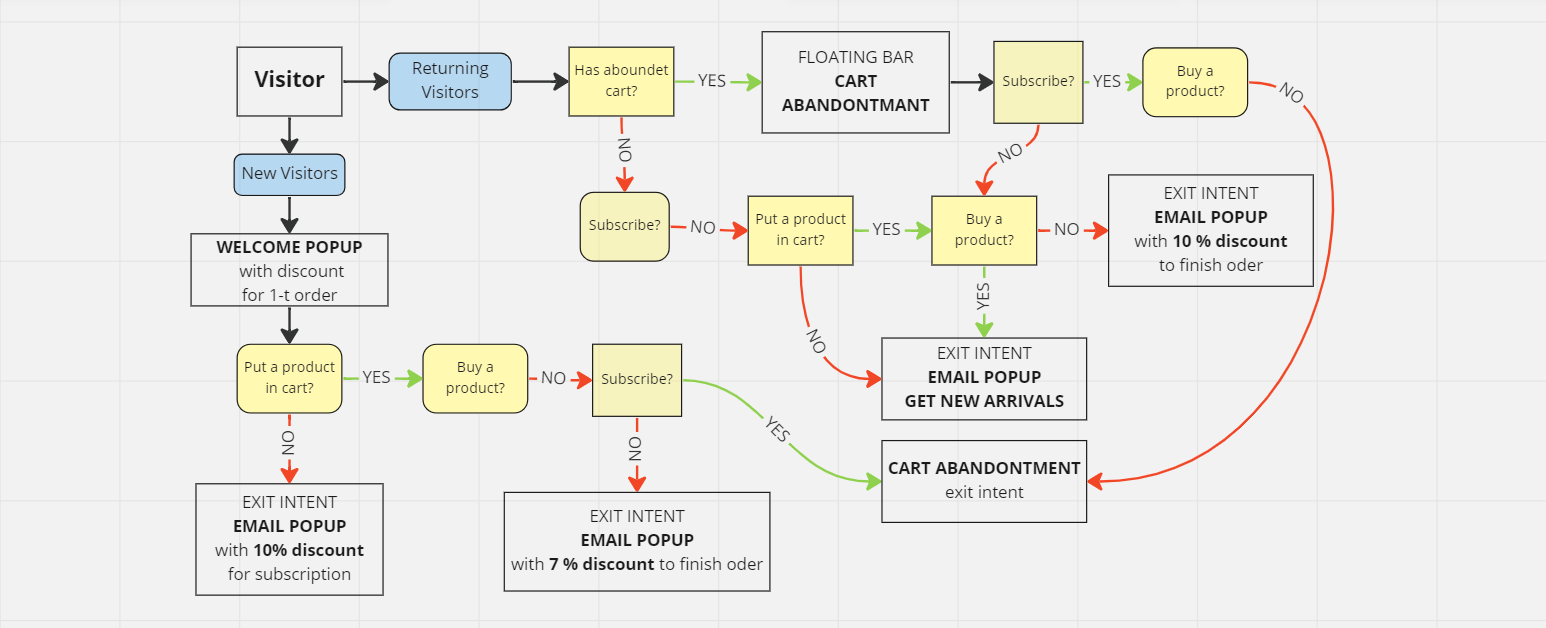

Marketing to First-time Visitors
After brainstorming and drafting a flow map, it was time to get to work.
Showing a welcome promo popup to new users
One tried-and-true method for converting first-time visitors into loyal customers is by offering them an irresistible discount the very moment they land on your website in exchange for their emails.
By doing so, you achieve two major goals: stimulate them to make a purchase and also build up your email subscriber base. Even if visitors leave your website without buying anything, you can always entice them to come back by sending them special offers and useful tips.
H2 Hub figured this out and decide to try it out by using this pop:


To achieve this, H2 Hub used Adoric’s Audience targeting feature to set the popup to only show to new visitors:
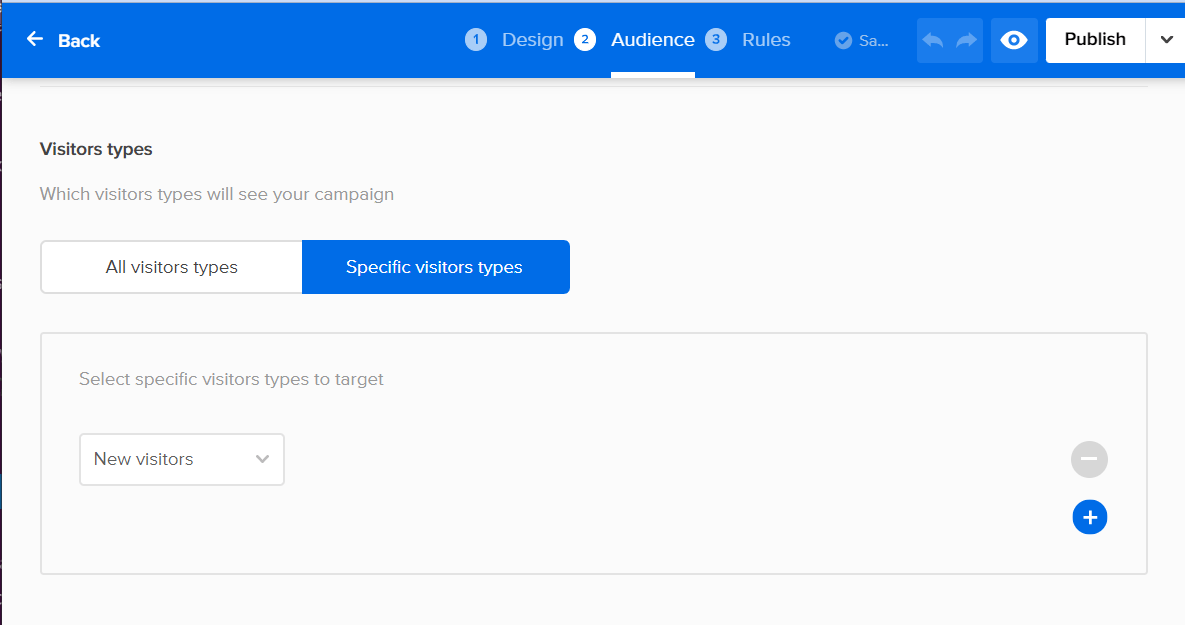

They took things a step further by setting up the popup to automatically show 5 seconds after a visitor lands on their site and ensured it only showed once.
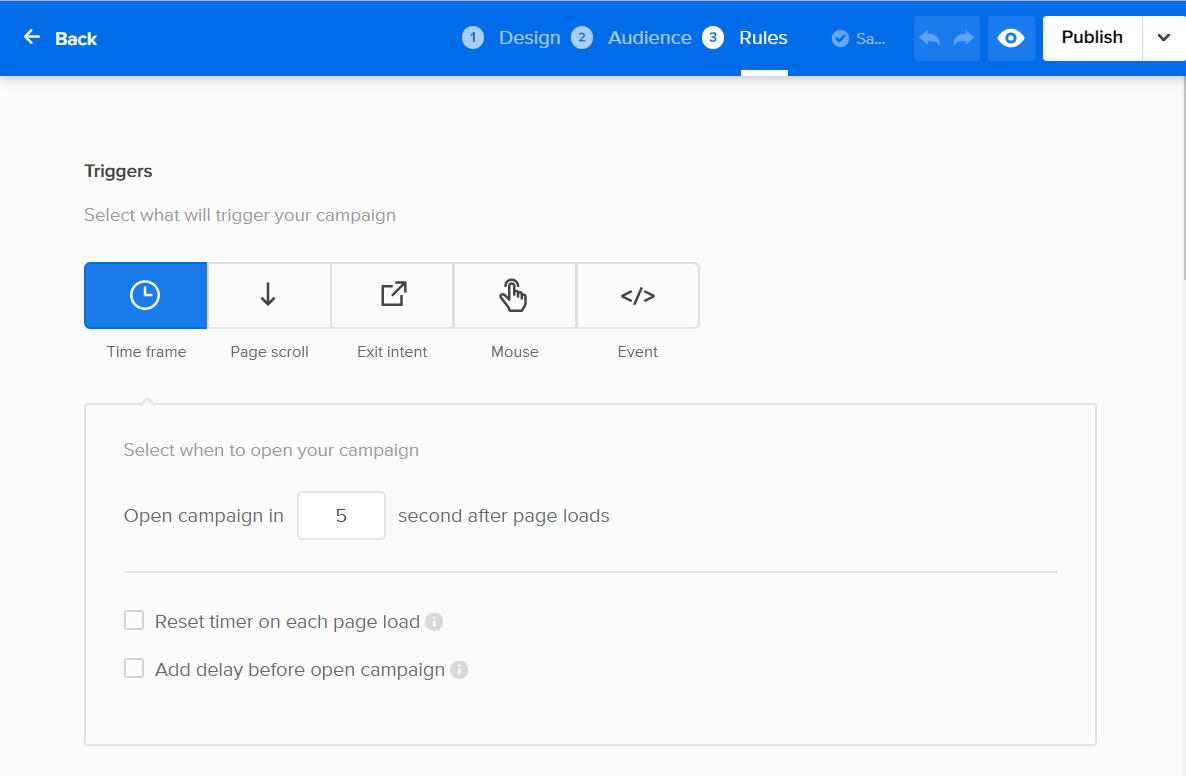

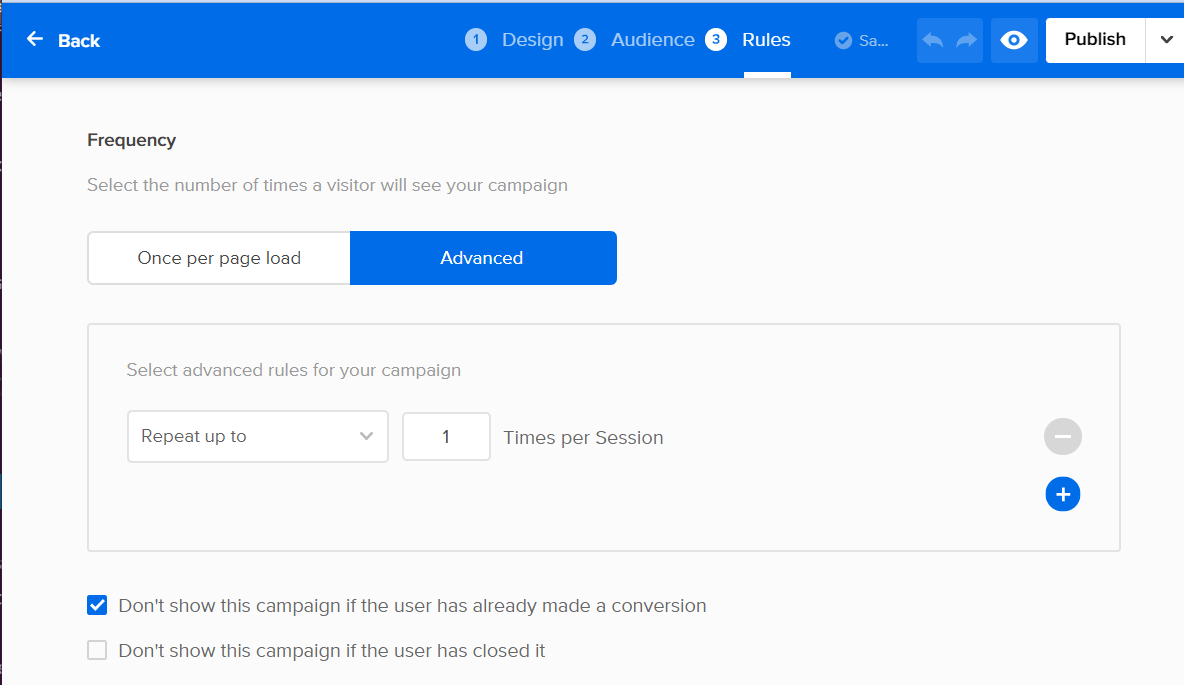

Winning back visitors that subscribed but didn’t complete their carts
After interacting with the welcome popup and even going further to add products to their carts, H2 Hub knew some will attempt to exit the website without completing their carts.
To win them back, H2 Hub deployed this cart abandonment exit popup to their website to remind shoppers about the products in their carts:
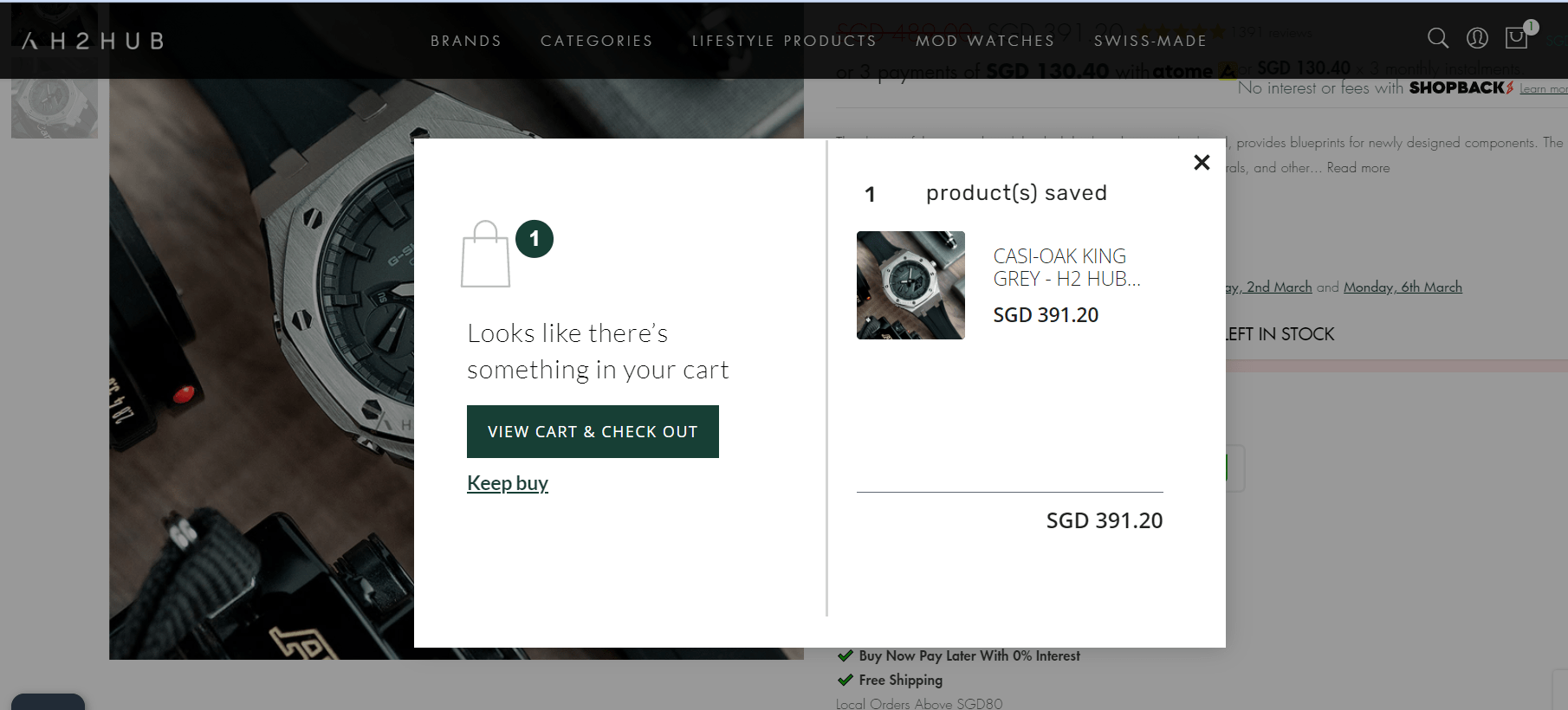


For best results, the exit-intent popup was programmed to show up immediately after a visitor tries to leave the site.
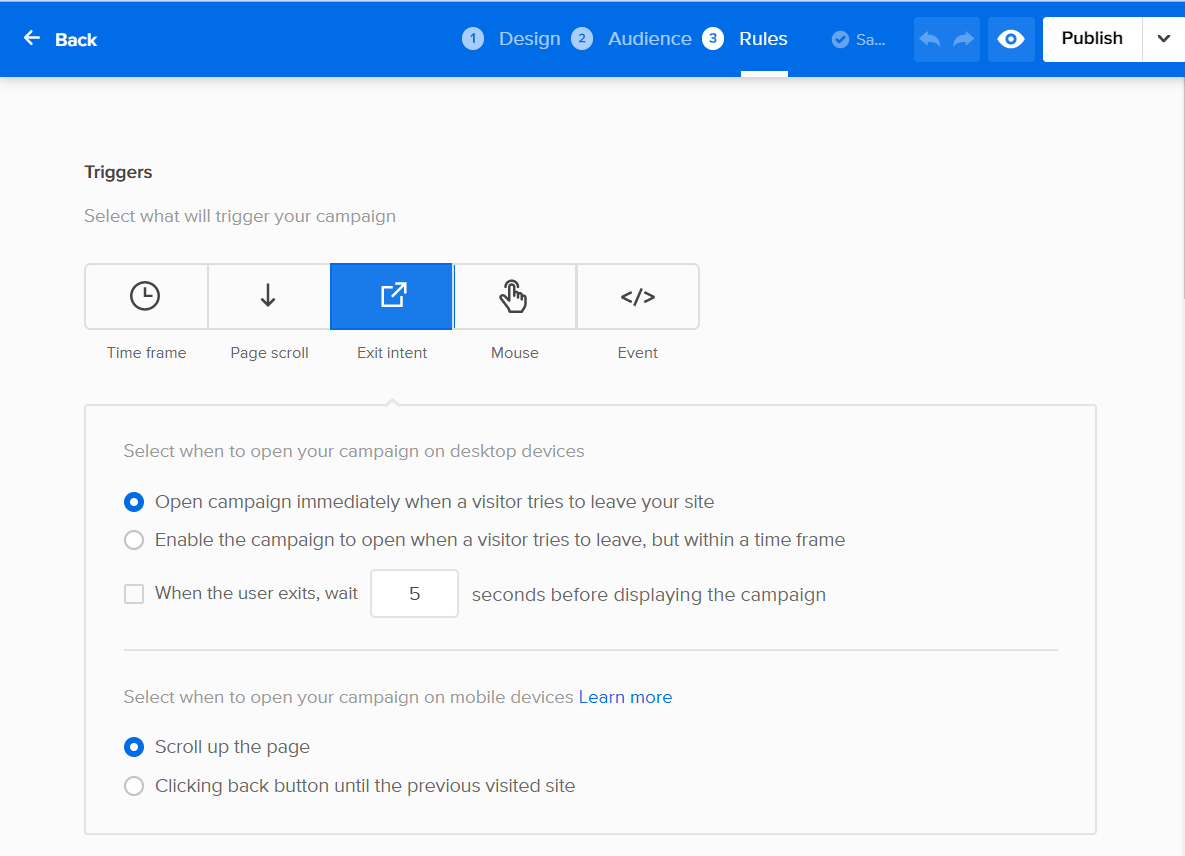

Winning back first-time visitors who didn’t subscribe
H2 Hub knew some first-time visitors will still not subscribe to the opt-in popup they had seen earlier. They segmented this set of visitors into two groups:
- Group1: Those who didn’t subscribe but added products to their carts
- Group 2: Those who didn’t subscribe but didn’t add any product to their cart
Group 1 visitors
H2 devised a strategy to win the first group of visitors. And that strategy was to entice them with a 7% discount using the popup below:
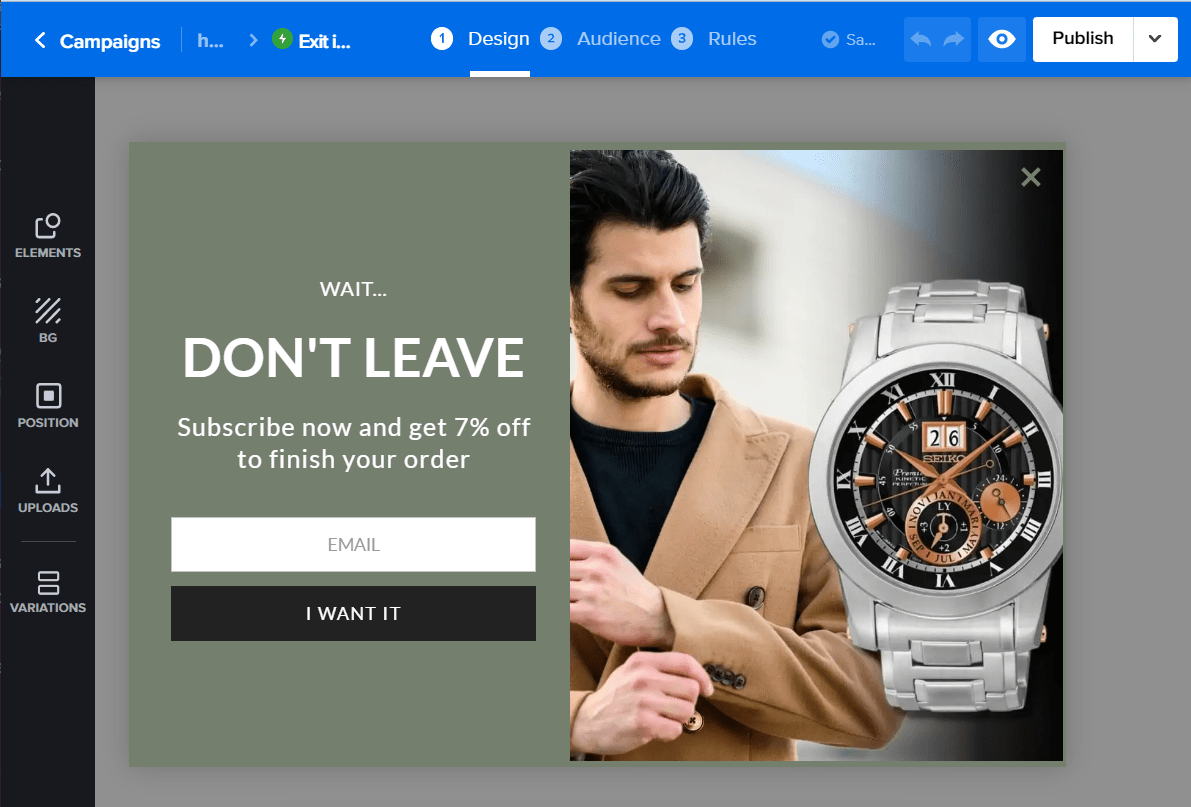

This is how it looked on mobile:
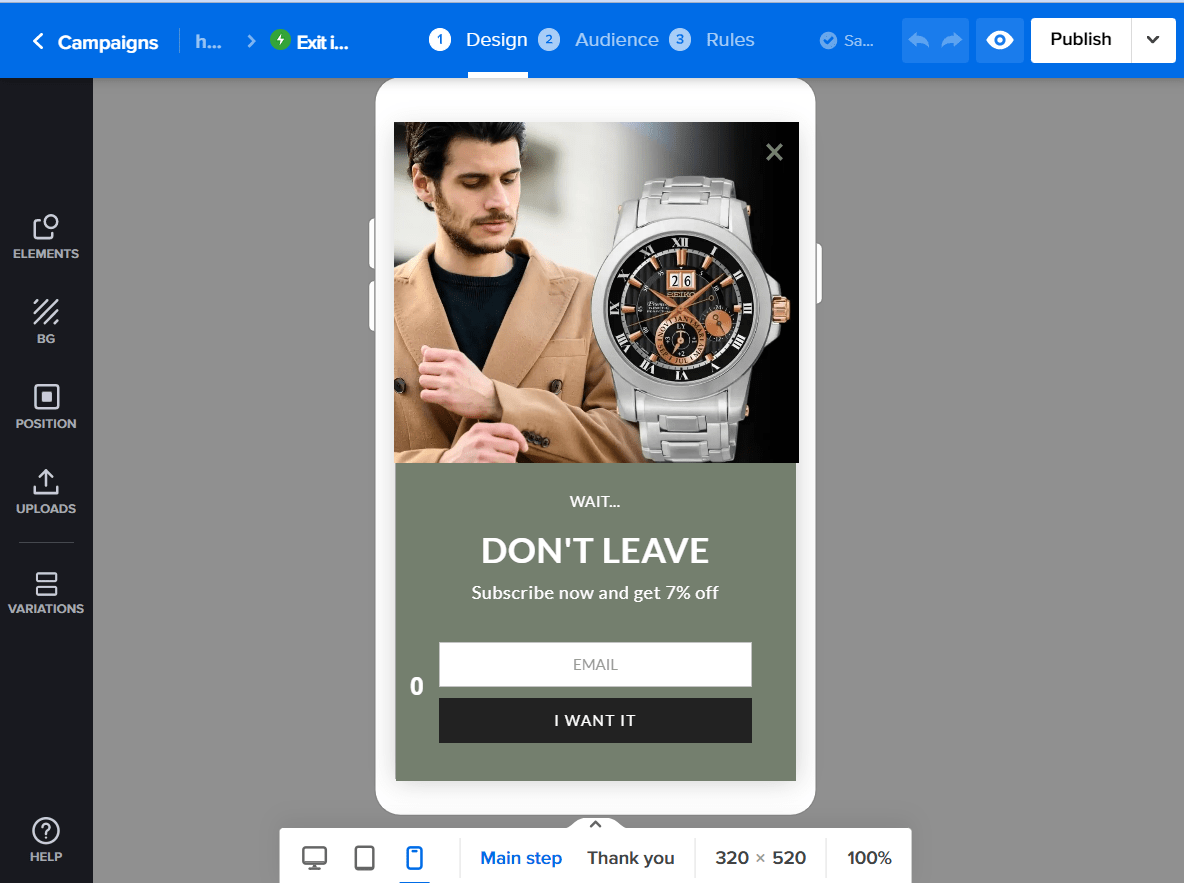

As they did previously, the popup was set to show only immediately after a visitor attempts to exit the website.
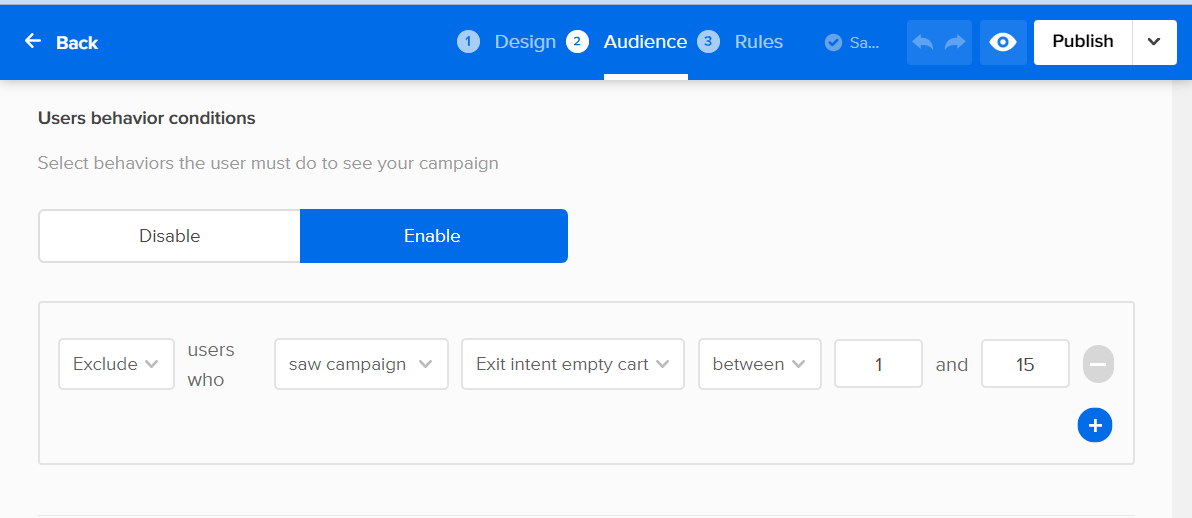

The idea was to get these abandoning visitors to complete their cart and at the same time give away their emails.
Group 2 visitors
The second group of visitors were those who didn’t subscribe and still didn’t add any product to their cart. H2 needed a different tact to win back this group.
And so they decided to up their game by offering these visitors a 10% discount using the popup below:
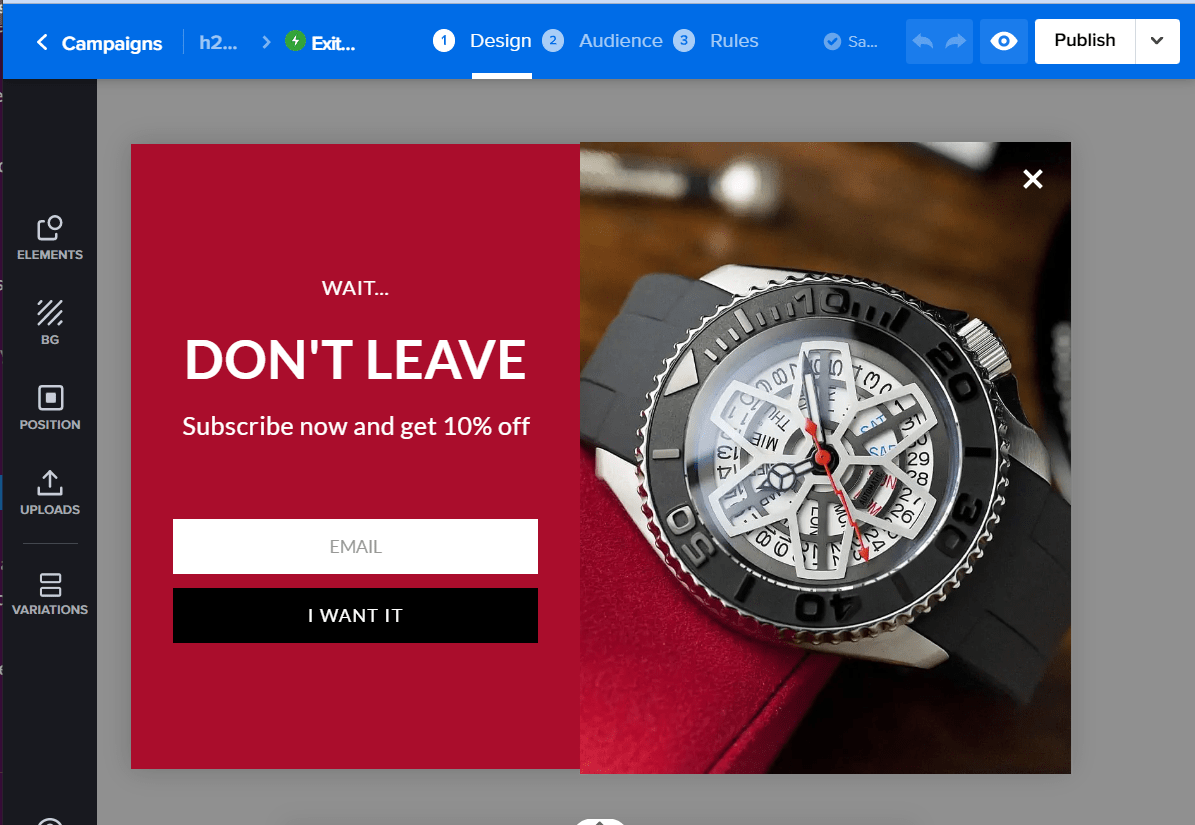

To improve the exit popup’s performance, it was programmed to show up just once per session and certain groups of visitors were excluded from seeing it.
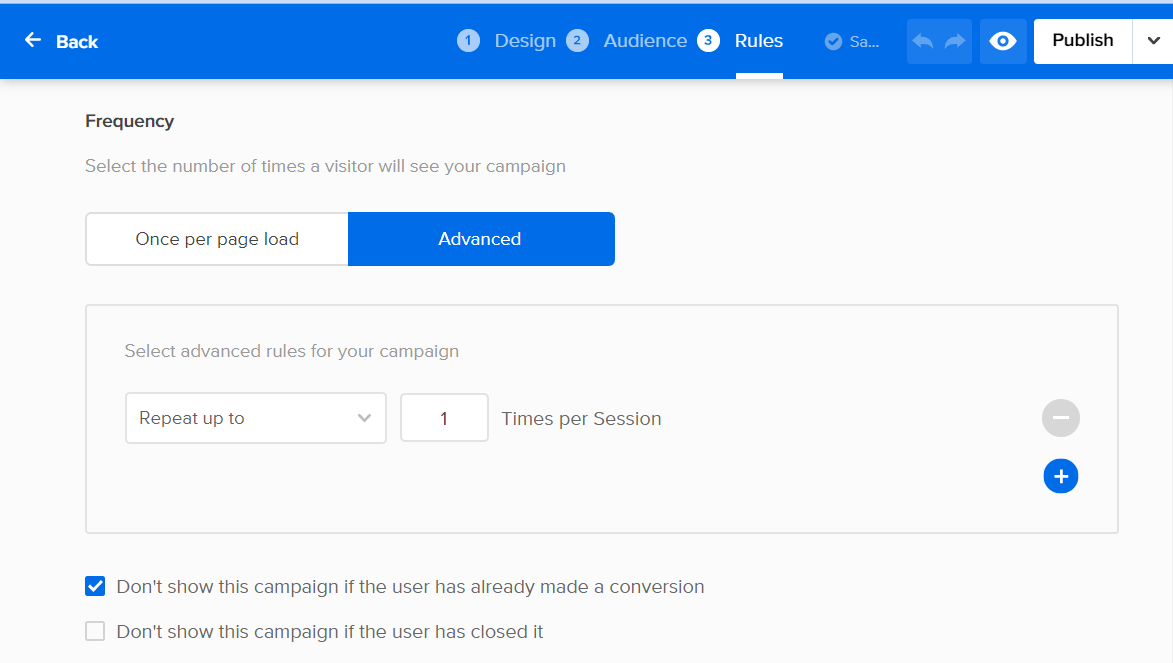

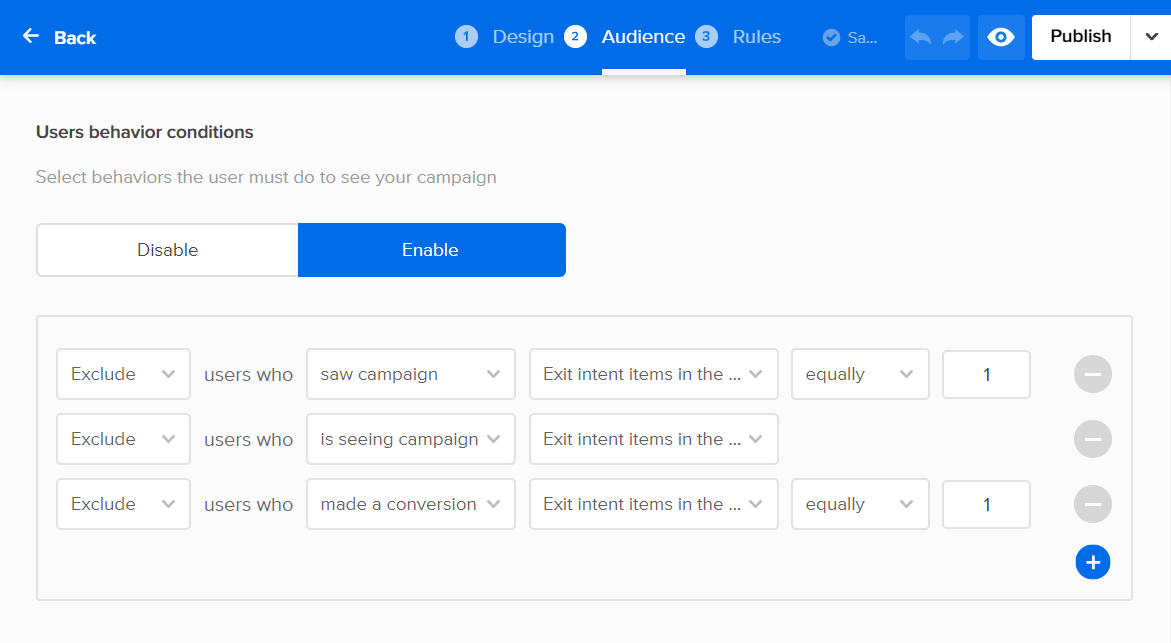

Why did H2 Hub offer different discounts to different user segments?
Well, the reason is simple. Visitors who added products to their carts are warm leads. As such, a little encouragement can push them to complete their carts, hence why H2 Hub offered them a 7% discount.
But those that didn’t subscribe and didn’t add products to their carts needed an extra push. Thus, H2 Hub offered them a sizeable 10% discount.
In the end, H2 Hub saved money yet achieved its marketing goals.
Marketing to Returning Visitors
H2 Hub also targeted returning visitors with popup campaigns. These are visitors that had earlier visited the website but either didn’t buy anything or initiated checkout but failed to complete it.
Returning visitors with abandoned carts
They started by checking if each visitor had an uncompleted cart from their last visit to the website. If they did, they were shown this floating bar campaign:
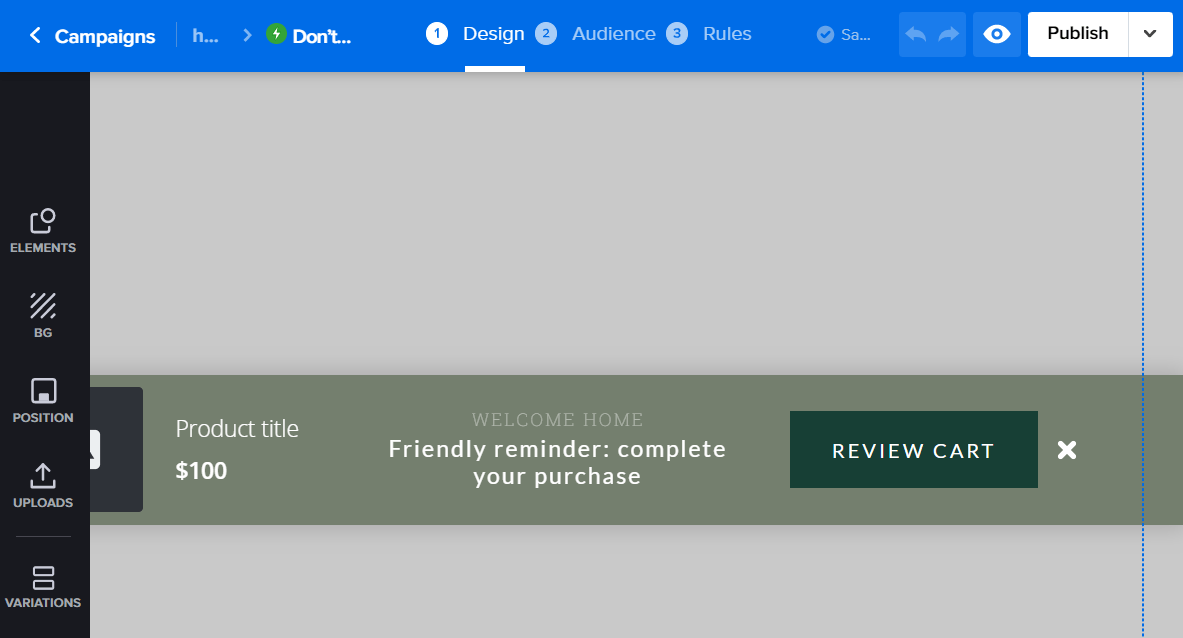

Unlike regular popups, floating bars are less intrusive and so less annoying.
To optimize the floating bar’s performance, H2 Hub ensured only returning visitors who visited the website only in the last 100 days saw it.
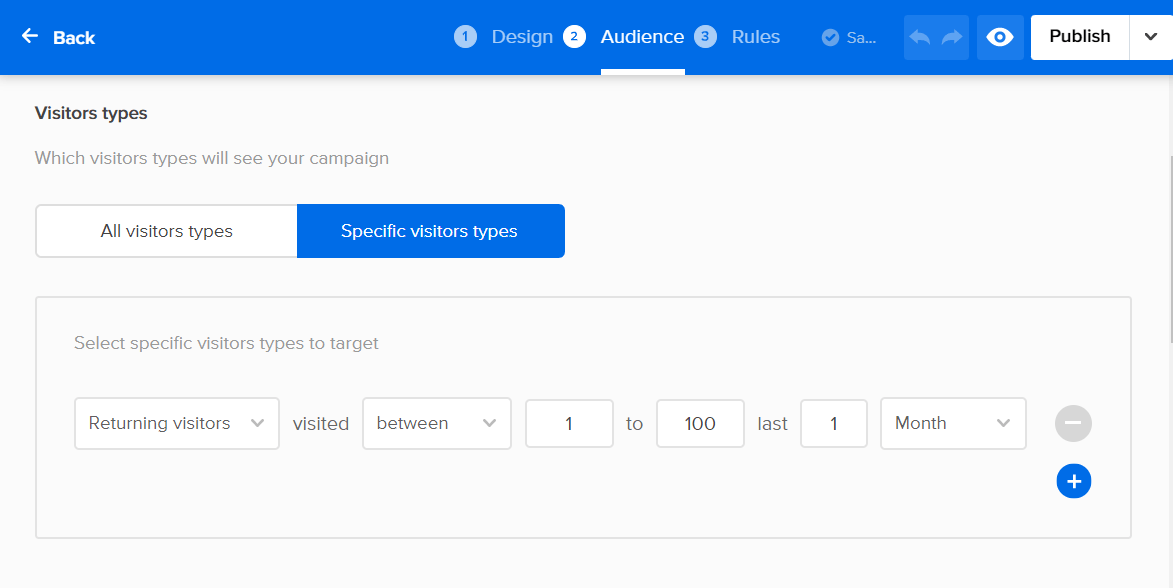

Returning visitors that added products to carts but didn’t complete purchase
H2 targeted returning visitors who added products to their carts but failed to complete the checkout before exiting the website.
If they are subscribed visitors, H2 will only remind them of the abandoned product in their carts by displaying this popup:



But if they haven’t subscribed, H2 showed them another popup asking for their emails in return for a discount:
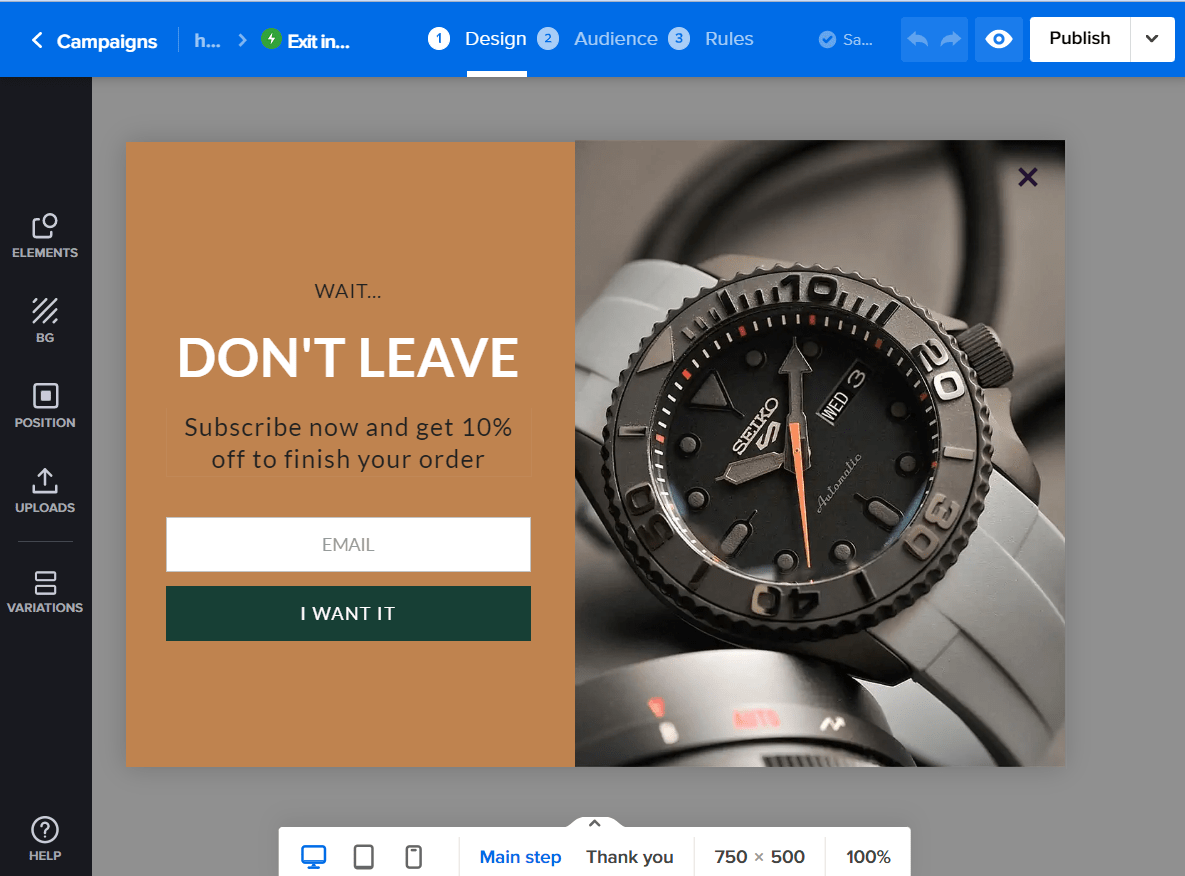

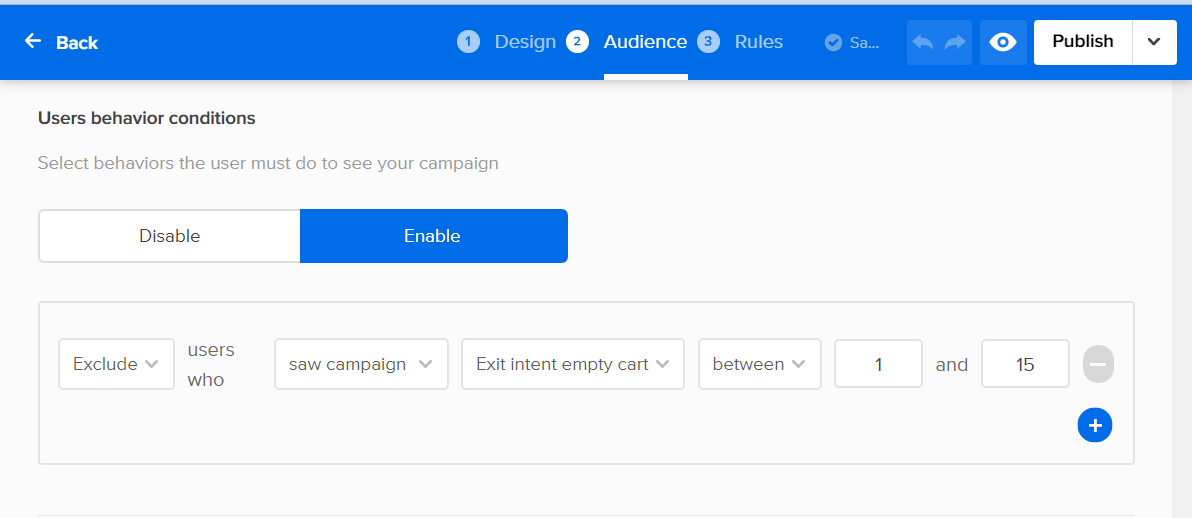

This time around the popup was programmed to show up 2 secs after a visitor attempts to exit the website.
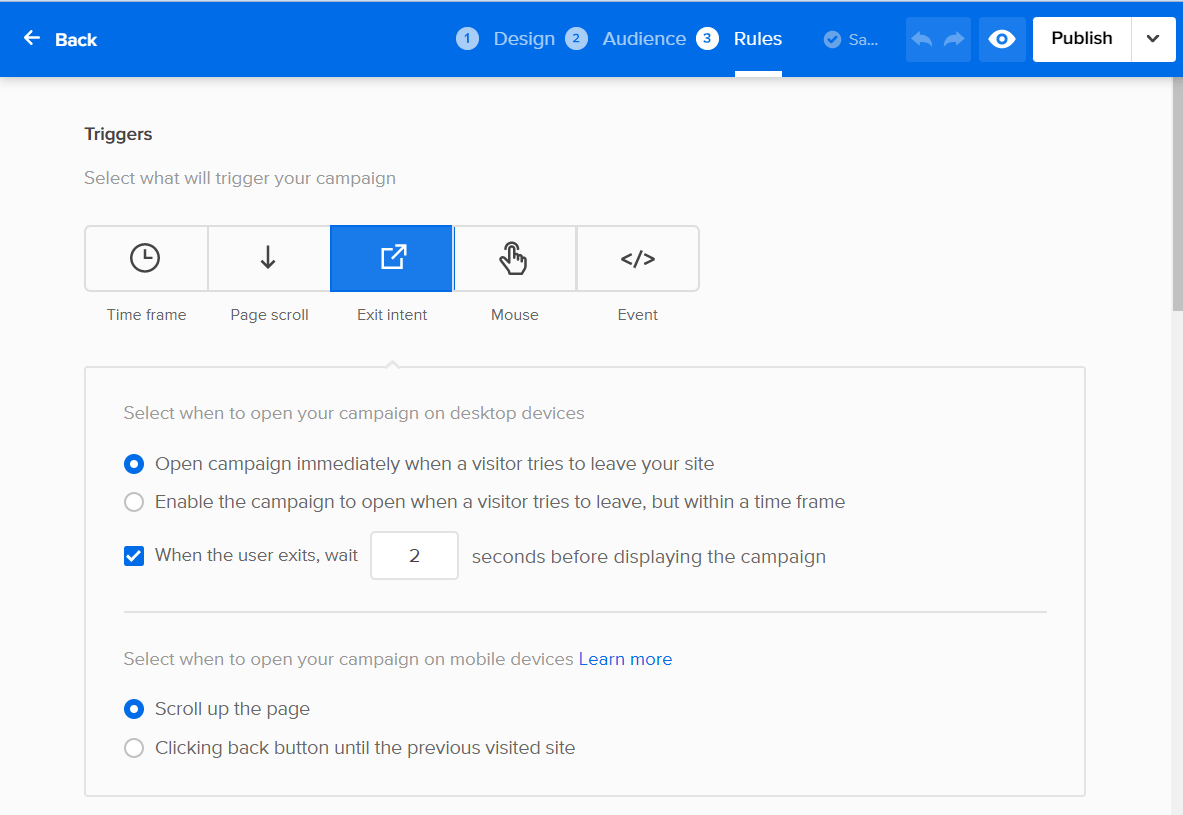

Returning visitors attempting to leave without adding products to their carts
Another segment of visitors H2 Hub targeted were those who were coming to the website for the second time but still attempts to leave without adding any product to their carts.
H2 supposed these were loyal, engaged visitors who couldn’t find what they were looking for.
H2 felt this set of visitors would be interested in receiving updates about new product arrivals, so decided to show them this popup:
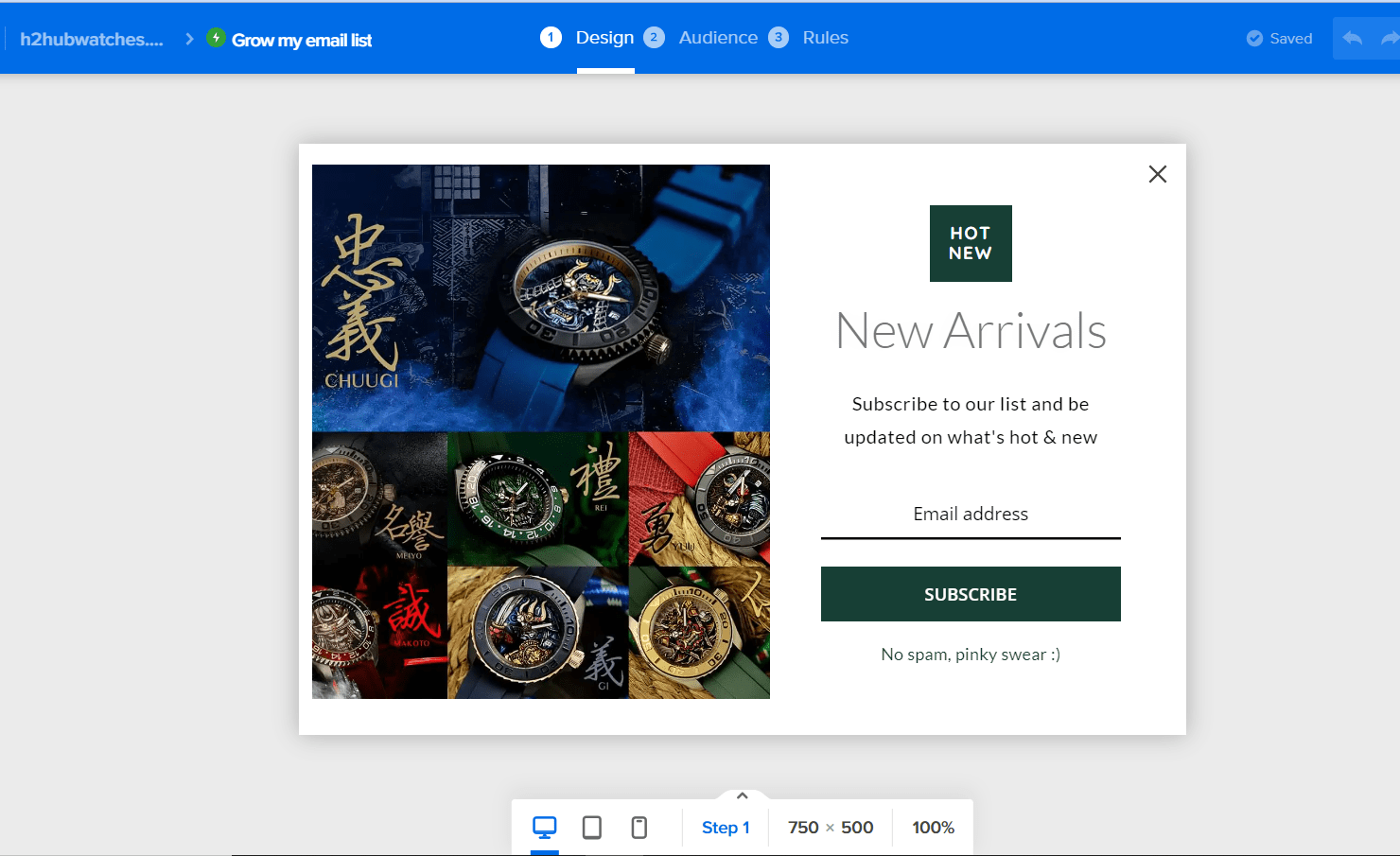

They also leveraged Adoric’s targeting feature to ensure the popup only showed to returning visitors who visited their website 10 days prior.
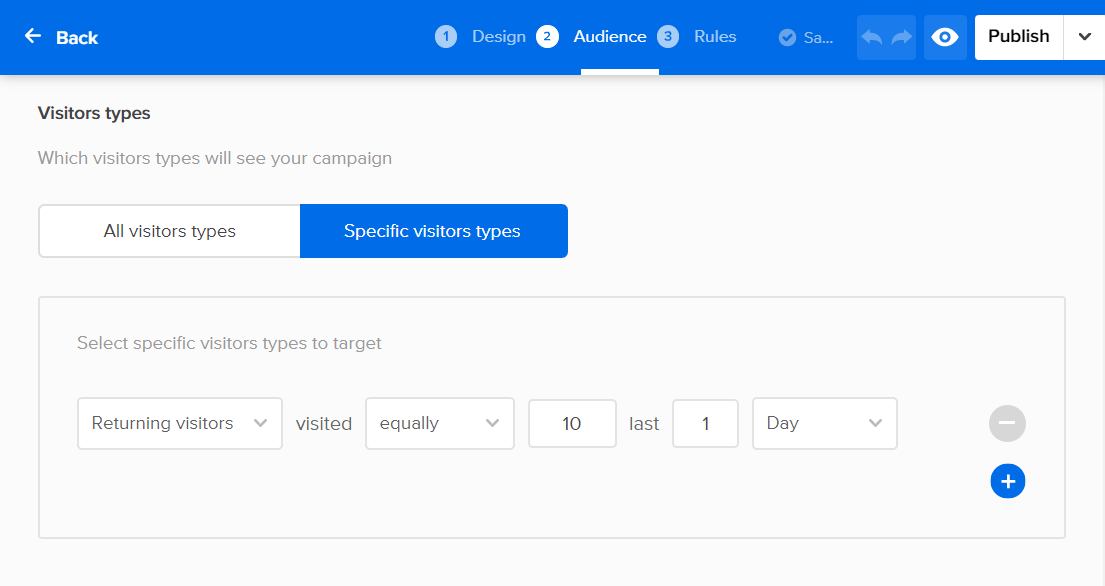

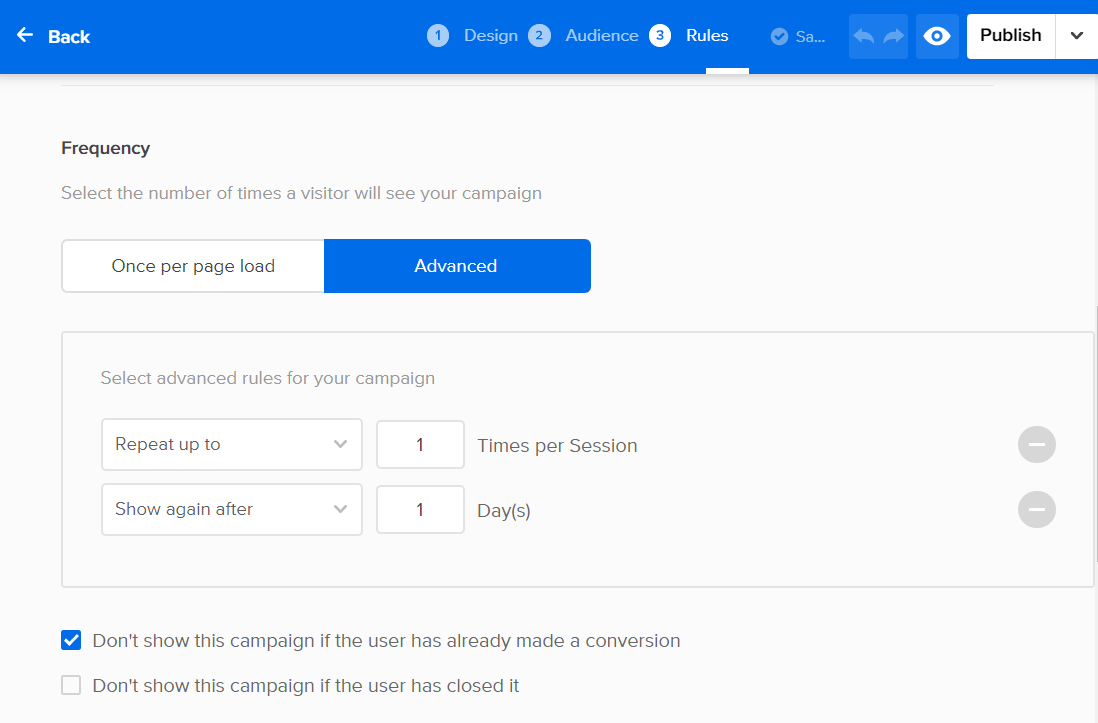

Results
At the end of it all, H2 Hub watches saw their sales revenue rise tremendously to $40,000. And these sales came from 1086 leads.
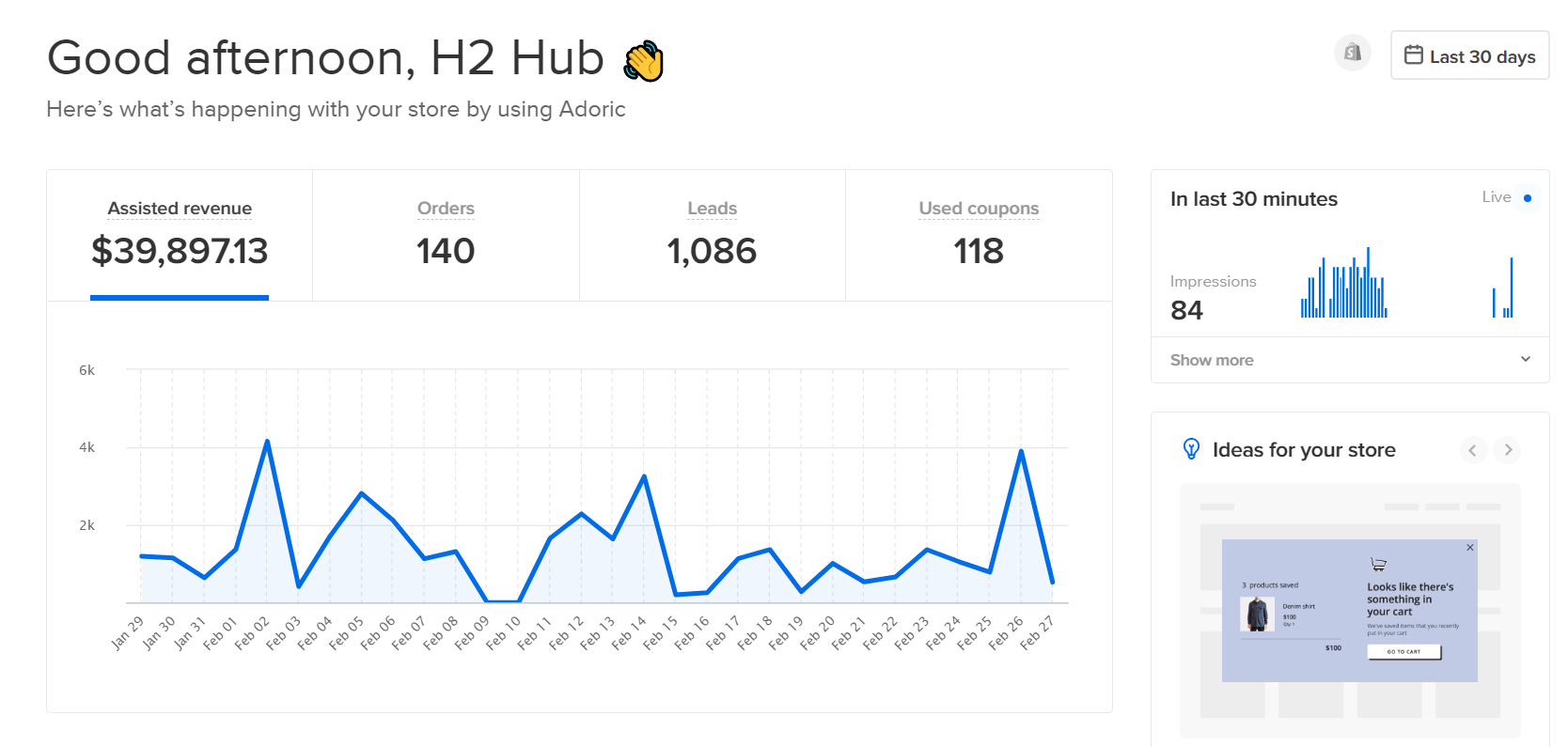

Conclusion
Here are a few insights you can take home from this case study:
- It’s important to segment your audience and serve each segment a different pop-up with a different call to action, depending on their stage in the sales funnel.
- If you plan to use a complex chain of popups, it’s important to create a mindmap before you start.
- It’s better to use a pop-up chain if you wish to achieve a cumulative effect. They are more effective than singular popups with only one message.
- If you are pressed for time and can’t create a complex chain of popups, start with simple welcome popups. You can also try your hands on welcome, abandoned carts, and exit popups to create a smart flow that can help you grow your business.
H2 Hub is proof that when implemented properly popups can help uplift your bottom line. In addition, it can be instrumental in getting visitors to opt-in to your mailing list and persuade abandoning visitors to complete their carts.
Adoric is one app you can count on to create conversion-driven popups that yield sales and drive up email opt-ins.
Why not Add Adoric to your Shopify website right away to put it to the test?

